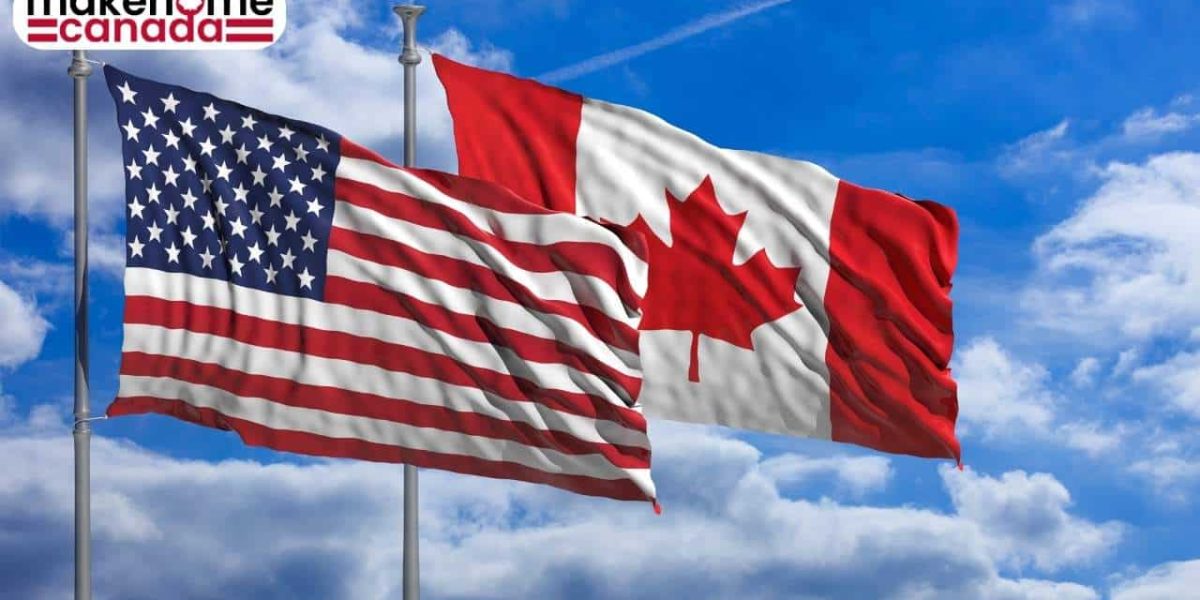Francophone students get a direct pathway from study to PR, i.e., the Francophone Minority Communities Student Pilot (FMCSP) opens a direct, less competitive path to Canadian permanent residency (PR) for eligible French-speaking international students. Unlike the standard route that requires a Post-Graduation Work Permit (PGWP) followed by Express Entry, this pilot allows students to apply for PR immediately after graduating, thus bringing greater certainty and speed to their Canadian immigration journey.
What Is The Francophone Student Pilot?
The FMCSP is designed to help French-speaking students from eligible countries transition directly to PR after completing post-secondary studies in Canada without the need to go through Express Entry or accumulate Canadian work experience.
Whereas the Canadian Experience Class (CEC) within Express Entry demands high competition and French proficiency of NCLC 7, the FMCSP only requires NCLC 5, making it far more accessible for Francophone candidates.
This initiative is aligned with Canada’s broader goal of increasing Francophone immigration outside of Quebec, particularly in minority communities.
Who Is Eligible: Countries And Requirements
Citizenship eligibility is strictly limited. Only individuals holding nationality in one of the following 33 countries are eligible to apply:
- Bénin
- Burkina Faso
- Burundi
- Cabo Verde
- Cameroon
- Central African Republic
- Chad
- Comoros
- Côte d’Ivoire
- Democratic Republic of the Congo
- Dominica
- Republic of the Congo
- Djibouti
- Egypt
- Equatorial Guinea
- Gabon
- Guinea
- Guinea‑Bissau
- Haïti
- Lebanon
- Madagascar
- Mali
- Mauritania
- Mauritius
- Morocco
- Niger
- Rwanda
- Saint Lucia
- São Tomé and Príncipe
- Senegal
- Seychelles
- Togo
- Tunisia
If your citizenship is from any country outside this list, you would not be eligible for the FMCSP pathway.
Eligibility Conditions In Detail
Francophone students get a direct pathway from study to PR. However, to qualify under the FMCSP, applicants must meet the following criteria:
- Be a citizen of one of the 33 eligible countries listed above.
- Hold a Letter of Acceptance from a participating Designated Learning Institution (DLI) outside Quebec indicating that you are applying under this pilot and confirming that your program meets the FMCSP’s requirements. Your institution must validate that letter with IRCC. But if they fail to respond by the deadline, your application will be rejected.
- Demonstrate adequate financial resources to cover tuition, living costs, and any accompanying family members.
- Live outside Canada at the time you submit your application.
- Possess sufficient French-language ability namely, NCLC 5 across all four language skills.
Additionally, you might also need to submit:
- A police certificate, depending on country requirements
- A medical exam, if deemed necessary
Program And Study Requirements
Your academic program must meet the following conditions:
- Be full-time and at the post-secondary level
- Have a minimum duration of 2 years
- Lead to a diploma or degree, certificates or other credentials are not accepted
- Provide instruction in more than 50% French
Without meeting these standards, the application under FMCSP will not be approved.
Participating Institutions (DLIs)
Applicants must have a Letter of Acceptance from one of the 14 designated post-secondary institutions, all located outside Quebec. Some institutions participate across multiple campuses:
| Designated Learning Institution | Participating Campus(es) | Province |
| Collège Boréal | Sudbury, Toronto, Windsor, Ottawa, Nipissing, Timmins, Hearst, Kapuskasing | Ontario |
| Collège Communautaire du Nouveau-Brunswick | Acadian Peninsula, Bathurst, Campbellton, Edmundston, Dieppe | New Brunswick |
| Collège Éducacentre | Surrey | British Columbia |
| Collège La Cité | Ottawa | Ontario |
| Collège Mathieu | Gravelbourg | Saskatchewan |
| Université de Hearst | Hearst, Kapuskasing, Timmins | Ontario |
| Université de Moncton | Edmundston, Moncton, Shippagan | New Brunswick |
| Université de l’Ontario français | Toronto | Ontario |
| Université Laurentienne | Sudbury | Ontario |
| Université Saint Paul | Ottawa | Ontario |
| University of Alberta | Edmonton | Alberta |
| University of Ottawa | Ottawa | Ontario |
| University of Regina | Regina | Saskatchewan |
| York University | Glendon (Toronto) | Ontario |
As institutions decide to participate, this list may expand over time.
Submitting Your FMCSP Study Permit Application
Once you’ve been accepted into an eligible program, you can proceed with your FMCSP study permit application via:
- Your IRCC Secure Account, in most cases
- Your local visa office, in some specific cases
Your submission must include:
- The Letter of Acceptance, referencing your application under FMCSP and confirming adherence to program requirements
- Proof of financial support
- A valid French-language test result (TEF Canada or TCF Canada) demonstrating NCLC 5 or higher
- A police certificate, if required by your home country
- A medical exam, if mandated for your country or program
- Completing the section confirming your exemption from Provincial Attestation Letter (PAL)
- Payment of the $150 application fee
- Biometrics, if required, are typically requested within 30 days of submitting your application
After Approval: What Comes Next?
If your study permit is granted, you’ll receive a:
- Port of Entry (POE) Letter of Introduction – You have to present this when entering Canada
- Visitor visa or eTA, if your nationality requires one
Upon arrival and verification at the POE, your study permit will be issued and valid for the duration of your academic program.
As an FMCSP participant, you’ll also receive settlement services to help you integrate during your studies. Your spouse or common-law partner may be granted an open work permit, and your children can accompany you with study permits or visitor visas, depending on their eligibility.
Financial Requirements: Proof Of Support
Francophone students get a direct pathway from study to PR. However, when applying, you must prove you can cover tuition, living costs, and travel expenses for yourself and any family members. The required amount depends on:
- The community population size (where your school’s main campus is located)
- The number of accompanying family members
For a single applicant, the range typically spans between CAD 14,206 to CAD 20,635, though this varies by region.
Valid proof may include:
- A Canadian bank account in your name with transferred funds
- A Guaranteed Investment Certificate (GIC) from a recognized Canadian institution
- A student loan or education loan from a bank
- Personal bank statements covering the previous four months
- A bank draft in Canadian dollars
- Tuition or housing receipts if paid
- A sponsorship letter from someone offering financial support
- Scholarship or funding confirmation from a Canadian source
- Proof of legal ability to transfer funds, if subject to foreign currency controls
Transitioning To Permanent Residency
Once you complete your study program under FMCSP, you may be eligible to apply for Canadian PR, without needing to go through Express Entry or securing a job offer. To apply for PR, you must:
- Be residing outside Quebec
- Hold valid temporary resident status in Canada at the time of application
- Have earned a diploma or degree through the FMCSP program
Some applicants may face additional criteria, as stated by IRCC, depending on evolving guidelines.
Pilot Launch And Capacity Restrictions
The FMCSP began on August 26, 2024, allowing up to 2,300 study permit applications in its inaugural year. IRCC is expected to announce the 2025 cap later this month (August 2025), potentially opening more places for qualified applicants.
Final Thoughts
The Francophone Minority Communities Student Pilot (FMCSP) stands out as a transformative immigration pathway for French-speaking students from participating countries. By significantly lowering language requirements, eliminating the need for PAL and visa caps, and offering a direct path to PR upon graduation, it removes many of the barriers inherent in the traditional PGWP-to-Express Entry cycle.
Moreover, it offers financial flexibility, settlement support, and inclusive provisions for spouses and dependents – all combining to make the Canadian study-to-PR experience smoother, more predictable, and community-focused.
If you’re from an eligible country and considering studying in Canada, the FMCSP represents a unique and streamlined opportunity.
MakeHomeCanada, a Canadian immigration leader, promises excellence and tailored pathways for your Canadian journey. Get in touch with us at [email protected].




